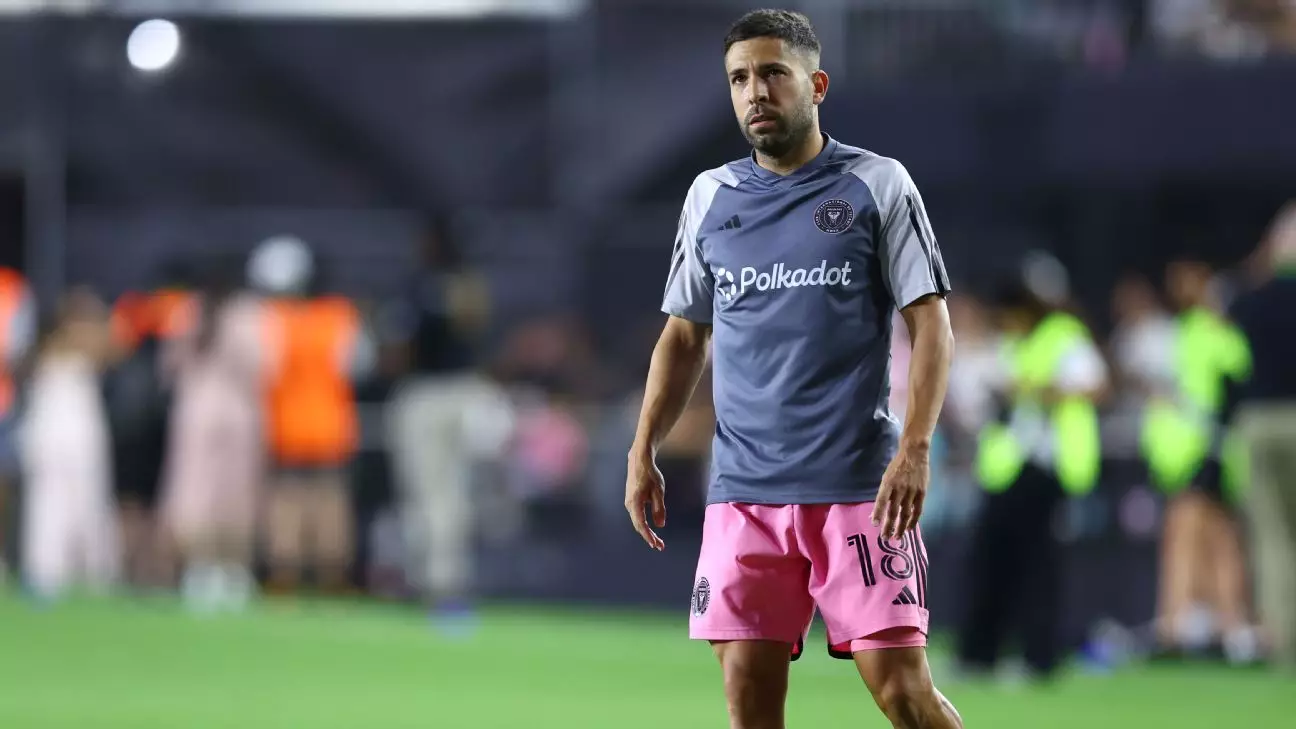The Major League Soccer (MLS) postseason has once again come under scrutiny, as noted by Inter Miami’s Jordi Alba following his team’s heartbreaking elimination from the playoffs at the hands of Atlanta United. In a nail-biting 3-2 defeat during the third match of a best-of-three series at Chase Stadium, Alba expressed his discontent with the current playoff format. This year marked his first experience in the MLS postseason, as Inter Miami did not qualify in 2023, finishing a dismal 14th in the Eastern Conference.
Alba’s assessment provides a window into a broader conversation about the effectiveness and fairness of the postseason structure within MLS. He called the format “unfair,” suggesting that despite the tradition behind it, there’s a significant need for reevaluation. The veteran defender emphasized the importance of a championship matchup that pits conference winners against each other rather than a series that could lead to inconsistencies and mismatches—echoing sentiments commonly expressed in discussions surrounding playoff formats in various sports leagues.
Although Inter Miami’s season was marked by significant achievements—such as winning the Supporters’ Shield and establishing a league record for points in a single season—the feeling of disappointment looms large after their early playoff exit. Coach Gerardo Martino dismissed the idea of celebrating this season as a success, highlighting the disconnect between the team’s potential and its actual postseason performance. In many ways, the aspirations of the team appeared to clash with the reality of elimination—an indication that the club’s ambitions must align more closely with its execution on the field.
Alba’s sentiments echo a longing for a more traditional playoff system akin to those in European leagues. His belief that conference champions should face off in a direct showdown suggests that he sees a disconnect between merit and outcome in the current MLS structure. Moreover, his comments reflect the growing pains that the league is encountering as it attempts to carve out its unique identity while balancing competitive integrity.
Despite having recorded dominant statistics in terms of possession and scoring opportunities, Inter Miami struggled to outmaneuver Atlanta United’s defense, particularly the remarkable performance from goalkeeper Brad Guzan. Alba noted, “Today I think we have been superior, we have dominated, but they attacked four times and they scored three goals.” This dichotomy of dominance versus efficiency underscores a central theme in soccer: the best-performing team on the field doesn’t always secure victory.
The Herons’ ability to muster attacking prowess from superstar Lionel Messi was apparent, yet their reliance on individual brilliance has often come under scrutiny. Inter Miami’s balance between collective strategy and individual execution will be essential for future roster development as they pivot towards the 2025 MLS season. How the club chooses to address their weaknesses and enhance team cohesion will play a pivotal role in avoiding such a fate in the future.
Looking ahead, Inter Miami faces the inevitability of an offseason filled with scrutiny and potential roster changes. The organization’s leadership must carefully assess where improvements are needed, with both player performance and strategic planning under the microscope. The club’s future success will hinge not only on their ability to attract high-profile talent but also on developing a cohesive unit that can withstand the rigors of a lengthier playoff run.
The transition into the 2025 campaign offers a unique opportunity for introspection and growth. The balance of recognizing past achievements while addressing the shortcomings that led to early elimination will be foundational for Inter Miami as they aim to cultivate a championship-caliber squad. As the league evolves and continues to gain traction in the global soccer landscape, the dialogue around formats and strategies will remain crucial in shaping its trajectory.
Jordi Alba’s critique serves as a significant conversation starter about the intricacies of the MLS playoff structure. The league’s stakeholders, including team management, players, and fans, must remain actively engaged in discussions regarding fairness, competitive integrity, and the overall development of soccer in the United States. This period of reflection and critique may very well dictate the future of not only Inter Miami but the league as a whole.

